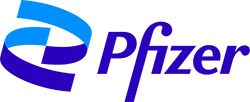Save lives by learning the signs of stroke

A leading cause of disability and second leading cause of death worldwide, one in four adults over the age of 25 will have a stroke in their lifetime.
According to current trends, that number is unfortunately on the rise, with 6.7 million stroke-related deaths projected per year unless appropriate action is taken.
In the Middle East and North Africa, not only has the incidence of stroke increased in the last decade , but according to projections, stroke-related deaths will close to double by 2030.
Caused by a disruption of blood supply to the brain, leading to oxygen starvation, brain damage and loss of function, strokes can cause permanent damage in patients, including partial paralysis and speech impairments, comprehension and memory. Strokes can also be caused by hemorrhage when a burst blood vessel bleeds into the brain.
The risk of stroke increases with age, with core risk factors including tobacco use, physical inactivity, unhealthy diet, harmful alcohol use, hypertension, atrial fibrillation, raised blood lipid levels, obesity, male gender, genetic disposition and psychological factors. Moreover, evidence suggests that COVID-19 infection increases an individual's risk of stroke.
Despite the high incidence rate of strokes globally, almost all strokes are preventable. By learning and recognizing the signs of stroke quickly and acting fast, not only might you help prevent long-term damage, but you may help save a life.
Early screening is paramount to the reduction in the incidence of strokes. With regular visits to health care professionals, patients at risk can be accordingly treated. For example, data suggests that of patients suffering ischemic strokes – the most common kind – one in four had underlying Atrial Fibrillation (AFib) that went undiagnosed. A common heart condition that causes an irregular heart rhythm (arrhythmia), AFib is associated with the formation of blood clots and, subsequently, strokes.
In fact, the risk of stroke increases by almost five-fold in patients suffering from Afib,2 yet AFib patients can be potentially treated with anticoagulants, helping to reduce the risk of blood clots. Despite this, more than 75 per cent of people aged 65 and older are not being screened for AFib during routine primary care examinations.
Perhaps most importantly, however, is the importance of recognizing the signs of stroke and acting F.A.S.T. An acronym which stands for: face, arms, speech and time, signs of stroke include facial drooping, an inability of the patient to raise their arms and slurred speech.
Should you recognize signs of a stroke, you need to act fast and call an ambulance immediately. Just like a heart attack, every second is precious. Whatever you do, don't delay, and you may just save a life.
References

